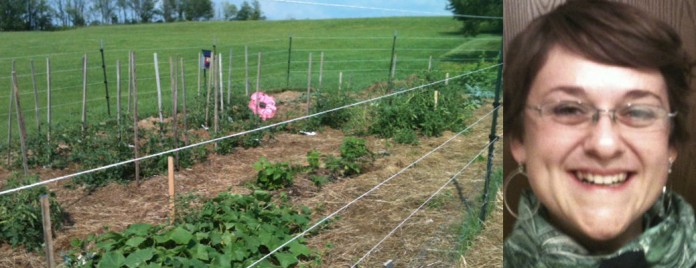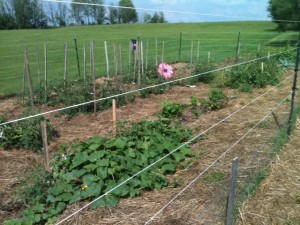By Sarah Cross

Everyone creates his own image when you think of “home.” For some, it may be their “home place,” where they were raised. For others, it could be the place where they raised their children. Perhaps “home” is simply with your significant other.
When I think of home, I think of food — whole, homegrown food — as well as the people who provided it.
It’s hard not to reminisce about food when traveling to the small, rural Appalachian town where I grew up. When I get to the stoplight, I continue back several windy country roads. First, I pass a dairy operation. They have recently gotten into the produce business and have built multiple high tunnels. I usually stop in the spring and buy vegetable plants for our garden. The next farm I pass is a small beef cattle operation. They gave us ground “steak burger” last year for Christmas. You’d have thought heaven hit your mouth.
When I reach the community garden, where multiple neighbors garden together, I know I’m getting close to the farm house. During the late summer, they are always canning outside, while shooting the breeze.
When I finally get to the home place, Dad doesn’t wonder where I’ve been the last several hours. He knows it likely involved food and neighbors. Then, it’s off to make hay for the livestock, grow a big garden, or feed the poultry.
‘Til this day, home is where the good food is.
Although, it may be a bit of a haul to get to the original “home place,” every small farm has a piece of home for me. It’s a familiar place where people put knowledge to work and where families provide needs for their communities. (Not to mention, there’s great food!)
Sharing food knowledge
Once upon a time, my farm family story was more common. The reality is, most kids today do not grow up on a farm and for this reason there is a tremendous need to keep people connected to their food sources.
We owe it to our youth to provide hands-on learning experiences with food. I believe there is a responsibility to teach our children that home can be, in fact, where the food is.
Through Farm-To-School programs, OSU Extension teaches children and young adults how to grow their own food.
Over the past two years, our local OSU Extension Master Gardener Volunteer Program has developed multiple Farm-To-School projects. Students are often able to take a plant home and we encourage them and their families to start their own gardens. This, in turn, often leads to a multitude of opportunities, including strong family values, as well as sustainable community development.
(Sarah Cross is the OSU Extension Agriculture and Natural Resources Educator in Jefferson and Harrison counties and manages the local Master Gardener Volunteer Program. She has a master’s degree in agriculture from West Virginia University. To view her recent newsletters, visit http://www.go.osu.edu/harrisonnewsletter and/or http://www.go.osu.edu/harrisonnewsletter. To stay up to date on local Master Gardener Volunteer happenings, visit http://go.osu.edu/mgvjh).
Meet the next foodie!
Sign up for
Around the Table.
It's a FREE weekly e-newsletter all about food. Sign Up Today!
















